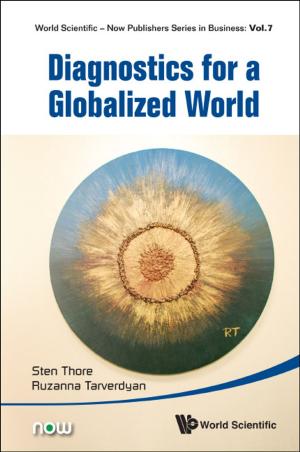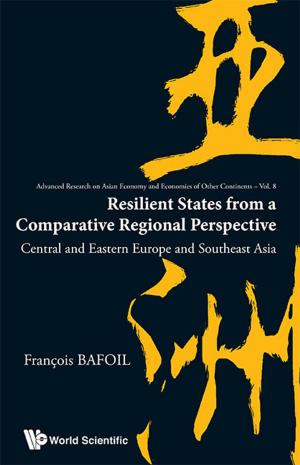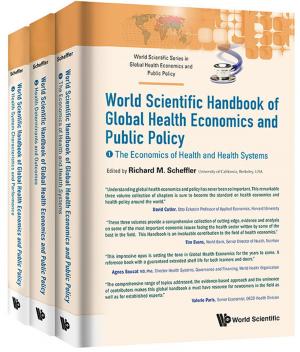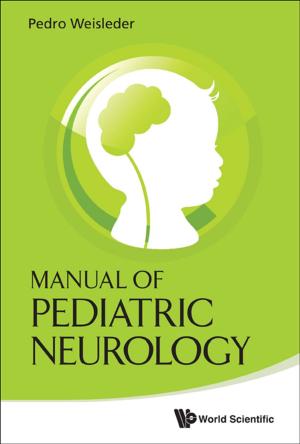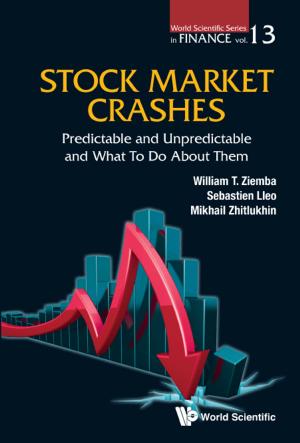Stochastic Models with Applications to Genetics, Cancers, AIDS and Other Biomedical Systems
Nonfiction, Science & Nature, Mathematics, Applied, Statistics, Science| Author: | Wai-Yuan Tan | ISBN: | 9789814397216 |
| Publisher: | World Scientific Publishing Company | Publication: | October 28, 2015 |
| Imprint: | WSPC | Language: | English |
| Author: | Wai-Yuan Tan |
| ISBN: | 9789814397216 |
| Publisher: | World Scientific Publishing Company |
| Publication: | October 28, 2015 |
| Imprint: | WSPC |
| Language: | English |
This book presents a systematic treatment of Markov chains, diffusion processes and state space models, as well as alternative approaches to Markov chains through stochastic difference equations and stochastic differential equations. It illustrates how these processes and approaches are applied to many problems in genetics, carcinogenesis, AIDS epidemiology and other biomedical systems.
One feature of the book is that it describes the basic MCMC (Markov chain and Monte Carlo) procedures and illustrates how to use the Gibbs sampling method and the multilevel Gibbs sampling method to solve many problems in genetics, carcinogenesis, AIDS and other biomedical systems.
As another feature, the book develops many state space models for many genetic problems, carcinogenesis, AIDS epidemiology and HIV pathogenesis. It shows in detail how to use the multilevel Gibbs sampling method to estimate (or predict) simultaneously the state variables and the unknown parameters in cancer chemotherapy, carcinogenesis, AIDS epidemiology and HIV pathogenesis. As a matter of fact, this book is the first to develop several state space models for many genetic problems, carcinogenesis and other biomedical problems.
To emphasize special applications to medical problems, in this new edition the book has added a new chapter to illustrate how to develop biologically-supported stochastic models and state space models of carcinogenesis in human beings. Specific examples include hidden Markov models and state space models for human colon cancer, human liver cancer and some human pediatric cancers such as retinoblastoma and hepatoblastoma. The book also gives examples to illustrate how to develop procedures to assess cancer risk of environmental agents through initiation-promotion protocols.
Contents:
- Introduction
- Discrete Time Markov Chain Models in Genetics and Biomedical Systems
- Stationary Distributions and MCMC in Discrete Time Markov Chains
- Continuous-Time Markov Chain Models in Genetics, Cancers and AIDS
- Absorption Probabilities and Stationary Distributions in Continuous-Time Markov Chain Models
- Diffusion Models in Genetics, Cancer and AIDS
- Asymptotic Distributions, Stationary Distributions and Absorption Probabilities in Diffusion Models
- State Space Models and Some Examples from Cancer and AIDS
- Some General Theories of State Space Models and Applications
- Stochastic Models of Carcinogenesis
Readership: Graduate students and researchers in probability & statistics and the life sciences.
This book presents a systematic treatment of Markov chains, diffusion processes and state space models, as well as alternative approaches to Markov chains through stochastic difference equations and stochastic differential equations. It illustrates how these processes and approaches are applied to many problems in genetics, carcinogenesis, AIDS epidemiology and other biomedical systems.
One feature of the book is that it describes the basic MCMC (Markov chain and Monte Carlo) procedures and illustrates how to use the Gibbs sampling method and the multilevel Gibbs sampling method to solve many problems in genetics, carcinogenesis, AIDS and other biomedical systems.
As another feature, the book develops many state space models for many genetic problems, carcinogenesis, AIDS epidemiology and HIV pathogenesis. It shows in detail how to use the multilevel Gibbs sampling method to estimate (or predict) simultaneously the state variables and the unknown parameters in cancer chemotherapy, carcinogenesis, AIDS epidemiology and HIV pathogenesis. As a matter of fact, this book is the first to develop several state space models for many genetic problems, carcinogenesis and other biomedical problems.
To emphasize special applications to medical problems, in this new edition the book has added a new chapter to illustrate how to develop biologically-supported stochastic models and state space models of carcinogenesis in human beings. Specific examples include hidden Markov models and state space models for human colon cancer, human liver cancer and some human pediatric cancers such as retinoblastoma and hepatoblastoma. The book also gives examples to illustrate how to develop procedures to assess cancer risk of environmental agents through initiation-promotion protocols.
Contents:
- Introduction
- Discrete Time Markov Chain Models in Genetics and Biomedical Systems
- Stationary Distributions and MCMC in Discrete Time Markov Chains
- Continuous-Time Markov Chain Models in Genetics, Cancers and AIDS
- Absorption Probabilities and Stationary Distributions in Continuous-Time Markov Chain Models
- Diffusion Models in Genetics, Cancer and AIDS
- Asymptotic Distributions, Stationary Distributions and Absorption Probabilities in Diffusion Models
- State Space Models and Some Examples from Cancer and AIDS
- Some General Theories of State Space Models and Applications
- Stochastic Models of Carcinogenesis
Readership: Graduate students and researchers in probability & statistics and the life sciences.


